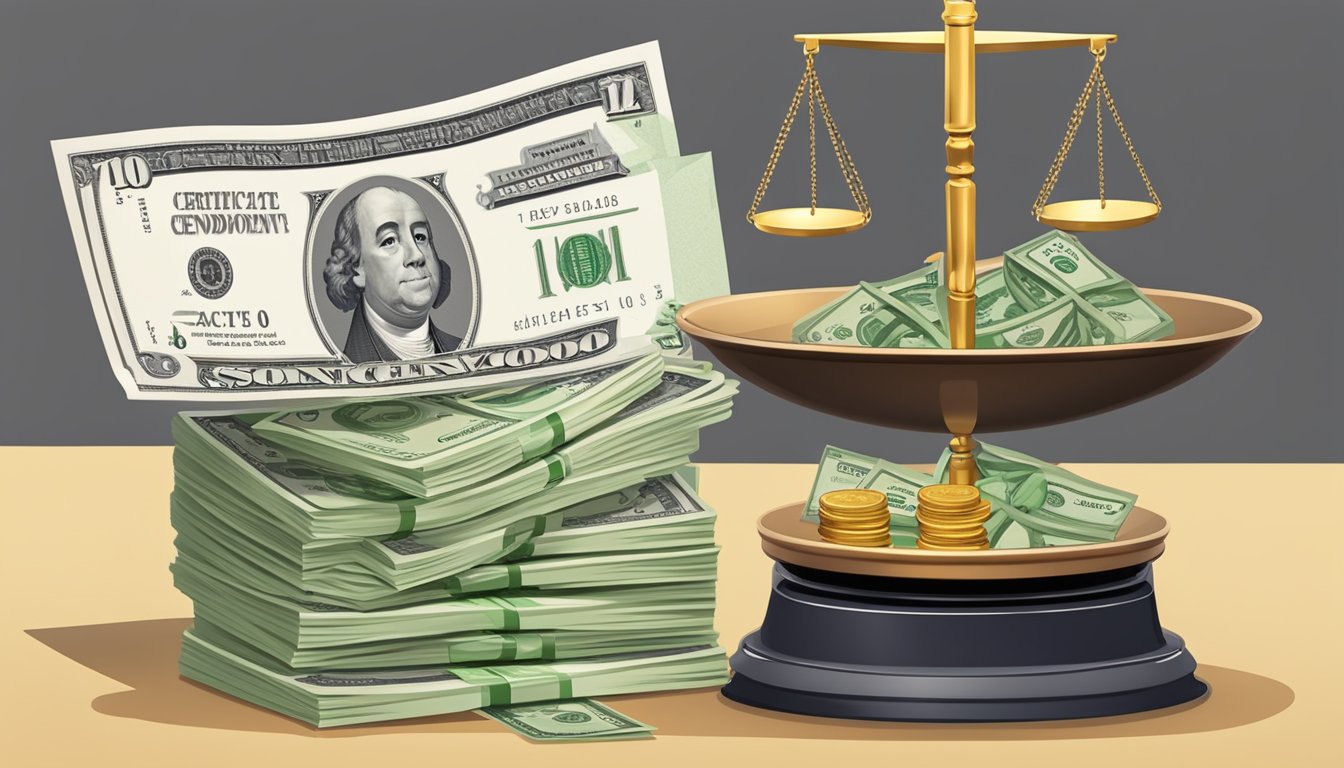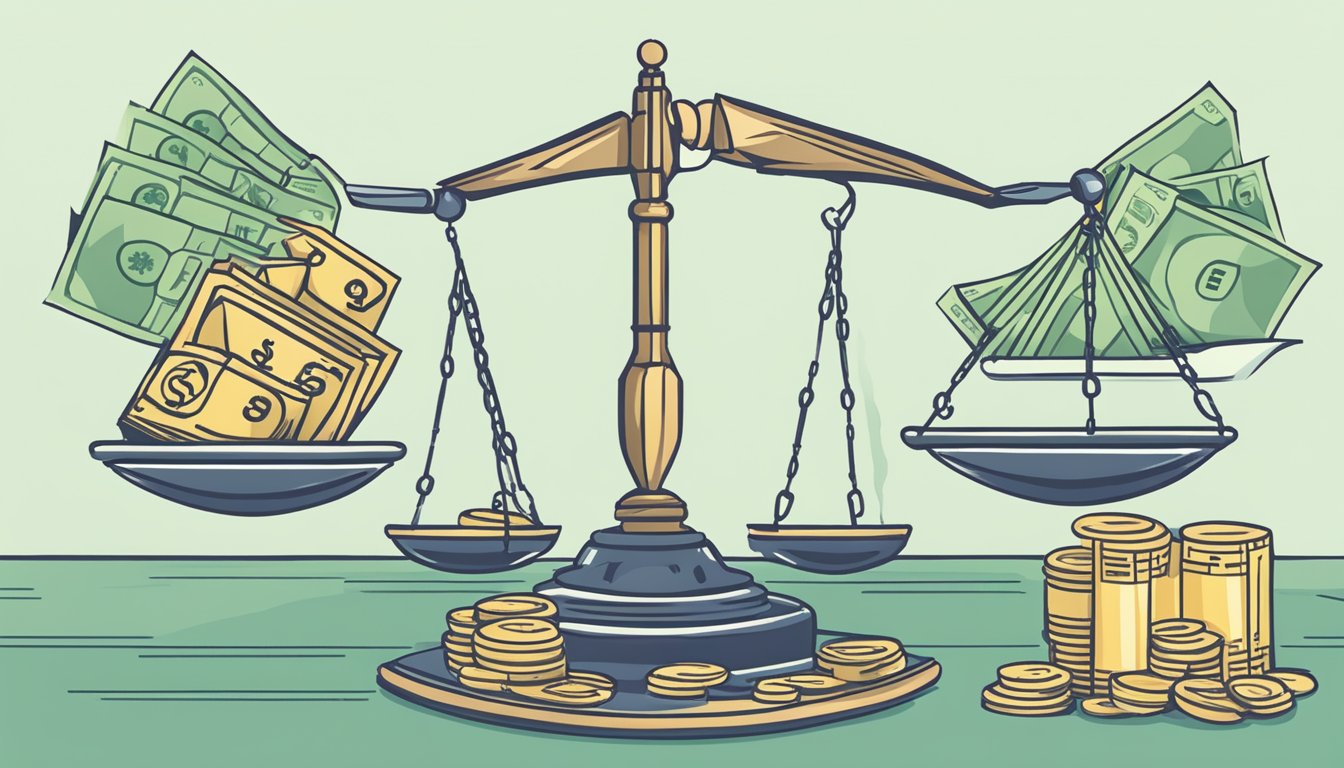Are you looking for a safe and reliable way to grow your savings in Singapore? Two popular options are fixed deposits and endowment plans. While both options can help you earn interest on your savings, there are some key differences to consider before you decide which one is right for you.

Fixed deposits are a type of savings account where you deposit a lump sum of money for a fixed period of time, typically ranging from 1 month to 5 years. In exchange for leaving your money with the bank for a set amount of time, you earn a fixed interest rate on your deposit. This makes fixed deposits a low-risk investment option, as you know exactly how much interest you will earn and when you will receive your money back.
Endowment plans, on the other hand, are a type of life insurance policy that also offer a savings component. You make regular premium payments to the insurer, who invests your money in a mix of stocks, bonds, and other assets. At the end of the policy term, typically ranging from 5 to 25 years, you receive a lump sum payout that includes both your savings and any investment returns. Endowment plans can offer higher returns than fixed deposits, but they also come with more risk and fees.
1 Min Read
Can’t decide between fixed deposits and endowment plans? Here’s a quick breakdown to help you choose.
- Looking for safety? Fixed deposits offer guaranteed returns, making them a low-risk option.
- Want higher returns (and some risk)? Endowment plans can potentially grow your money more, but they’re tied to market performance.
- Need access to your cash soon? Fixed deposits often lock your money in for a set period. Endowment plans may have early withdrawal penalties.
- Life insurance a priority? Endowment plans come with life insurance coverage, while fixed deposits don’t.
In short:
- Fixed deposits: Safe, predictable returns, good for short-term goals.
- Endowment plans: Potentially higher returns, life insurance, better for long-term goals (like retirement).
Still unsure? Talk to a financial advisor to see which option aligns best with your financial goals.
Understanding Fixed Deposits

If you’re looking for a low-risk investment with guaranteed interest, a fixed deposit might be the right choice for you. In this section, we’ll go over what fixed deposits are, their pros and cons, and where you can find the best fixed deposit rates in Singapore.
What Are Fixed Deposits?
A fixed deposit, also known as a fixed deposit account, is a type of savings account where you deposit a lump sum of money for a fixed period of time, known as a tenure. In return, the bank pays you a fixed interest rate on your deposit. The interest rate is typically higher than what you would get with a regular savings account, making it an attractive option for those looking to earn more on their savings.
Fixed deposits can come in both short-term and long-term options. Short-term fixed deposits usually have tenures of less than 12 months, while long-term fixed deposits can have tenures of up to 5 years or more.
Pros of Fixed Deposits
One of the biggest advantages of fixed deposits is the guaranteed interest rate. This means that you know exactly how much you’ll earn on your deposit, regardless of market fluctuations. Fixed deposits are also a low-risk investment, as your deposit is insured by the Singapore Deposit Insurance Corporation (SDIC) up to $75,000 per depositor per scheme.
Cons of Fixed Deposits
One of the downsides of fixed deposits is that your money is locked in for the duration of the tenure. This means that you can’t withdraw your money early without incurring a penalty fee. Additionally, the interest rates for fixed deposits are generally lower than other investment options, such as stocks or mutual funds.
Best Fixed Deposit Rates
If you’re interested in opening a fixed deposit account, it’s important to shop around for the best rates. Some of the banks that offer competitive fixed deposit rates in Singapore include Bank of China, CIMB, Citibank, DBS/POSB, Hong Leong Finance, and HSBC. You can also consider foreign currency fixed deposits if you’re looking to diversify your portfolio.
Tip: Don’t Miss Out! Maximize Your Returns with This Strategy
Consider using a combination of fixed deposits and endowment plans to optimize your returns! Fixed deposits offer guaranteed safety and immediate access for short-term needs, while endowment plans provide potentially higher returns for long-term goals. This strategy lets you enjoy the benefits of both worlds!
Exploring Endowment Plans

If you’re looking for a long-term savings plan that comes with life insurance coverage, endowment plans might be the right choice for you. Endowment plans are a type of insurance policy that requires you to pay a premium for a set number of years. At the end of the policy term, you’ll receive a lump sum payout, which includes the premiums you’ve paid, plus any bonuses that have been added.
Basics of Endowment Plans
Endowment plans are a popular savings option in Singapore because they offer a combination of savings and life insurance. They are divided into two categories: participating and non-participating. Participating endowment plans allow you to share in the profits of the insurance company, while non-participating endowment plans do not.
Endowment plans are typically long-term savings vehicles that can be used to achieve specific long-term financial goals, such as retirement. They usually require you to commit to paying a premium for a set number of years, ranging from 5 to 25 years.
Types of Endowment Plans
There are different types of endowment plans available in Singapore, each with its own set of benefits and drawbacks. Some of the most common types of endowment plans include:
- Endowment insurance plans: These plans provide both savings and life insurance coverage. They are typically more expensive than other types of endowment plans because they come with a higher level of insurance coverage.
- Participating endowment plans: These plans allow you to share in the profits of the insurance company. They offer higher returns than non-participating plans, but they also come with higher risks.
- Non-participating endowment plans: These plans do not allow you to share in the profits of the insurance company. They offer lower returns than participating plans, but they also come with lower risks.
Benefits of Endowment Plans
Endowment plans offer several benefits that make them an attractive savings option. Some of the benefits of endowment plans include:
- Guaranteed returns: Endowment plans offer guaranteed returns, which means you know exactly how much you’ll receive at the end of the policy term.
- Life insurance coverage: Endowment plans come with life insurance coverage, which can provide financial protection for your loved ones if something happens to you.
- Tax benefits: Endowment plans offer tax benefits, which can help you save money on your taxes.
Drawbacks of Endowment Plans
While endowment plans offer several benefits, they also come with some drawbacks. Some of the drawbacks of endowment plans include:
- Long-term commitment: Endowment plans require you to commit to paying a premium for a set number of years, which can be a long-term commitment.
- Lower returns: Endowment plans offer lower returns than other investment options, such as stocks or mutual funds.
- Penalties for early termination: If you terminate your endowment plan early, you may be subject to penalties, which can eat into your returns.
Comparing Fixed Deposits and Endowment Plans

When it comes to saving money, Fixed Deposits (FDs) and Endowment Plans are two popular options. Both offer different benefits and drawbacks, so it is important to understand the differences and choose the option that suits your financial goals best.
Risk and Returns
Fixed deposits are generally considered a low-risk investment option, as they offer a guaranteed interest rate for a fixed period of time. The returns are usually modest but stable, making it a safe option for those who prefer a conservative approach.
On the other hand, endowment plans have a higher risk profile, as they invest in various financial instruments such as stocks and bonds. This means that the returns are not guaranteed, but have the potential to be higher than FDs if the investments perform well.
Liquidity and Flexibility
Fixed deposits are less flexible than endowment plans, as the money is locked up for a fixed period of time. If you need to withdraw the money before the maturity date, you may face penalties and lower interest rates. However, this also means that you are less likely to spend the money before the maturity date, making it a good option for those who struggle with self-discipline.
Endowment plans, on the other hand, offer more flexibility as you can often withdraw the money before the maturity date. However, this may come at a cost, such as lower returns or surrender charges.
Time Horizon and Financial Goals
Fixed deposits are a good option for short-term savings goals, as the money is locked up for a fixed period of time. On the other hand, endowment plans are better suited for long-term savings goals, such as retirement planning or saving for your child’s education.
Insurance and Protection Benefits
Endowment plans often come with life insurance benefits, such as death benefit, total and permanent disability, and terminal illness coverage. This means that in the event of an unforeseen circumstance, your loved ones will receive a lump sum payout, providing financial protection and security.
Fixed deposits do not offer any insurance benefits, making it a less attractive option for those who prioritize financial protection.
Strategic Considerations for Personal Finance

When it comes to deciding between fixed deposits and endowment plans, there are several strategic considerations to keep in mind. By aligning your investments with your life goals, understanding policy terms and conditions, and evaluating insurance riders, you can make an informed decision that best suits your financial needs.
Aligning Investments with Life Goals
Before investing in either fixed deposits or endowment plans, it is important to consider your financial goals. Are you saving for retirement, education, or a down payment on a home? By setting a savings goal, you can determine which investment option is best suited to your needs.
Understanding Policy Terms and Conditions
When considering an endowment plan, it is important to read and understand the policy terms and conditions. These policies are typically long-term commitments, and it is important to ensure that you are comfortable with the premium payment terms, policy terms, and any riders that are included in the policy.
Evaluating Insurance Riders
Many endowment plans include insurance riders that provide coverage for critical illnesses or other unforeseen events. While these riders can provide peace of mind, it is important to evaluate the cost and benefits of each rider before making a decision.
Making Informed Decisions

When it comes to choosing between Fixed Deposits and Endowment Plans, it is important to make an informed decision based on your personal finance goals and investment options. Here are some key factors to consider before making your decision:
Pros and Cons at a Glance
Here are some of the pros and cons of Fixed Deposits and Endowment Plans to help you make an informed decision:
| Fixed Deposits | Endowment Plans |
|---|---|
| Guaranteed returns | Higher potential returns |
| Low risk | Higher risk |
| Short-term investment | Long-term investment |
| Limited liquidity | Flexible liquidity |
| No insurance coverage | Insurance coverage included |
| No tax benefits | Tax benefits available |
Key Factors to Consider
Before deciding which investment option is better for you, consider the following factors:
- Your investment goals: If you are looking for a low-risk investment option with guaranteed returns, then Fixed Deposits may be a better option for you. However, if you are willing to take on higher risk for the potential of higher returns, then an Endowment Plan may be a better fit.
- Your investment timeline: If you need access to your funds in the short-term, then Fixed Deposits may be a better option as they offer short-term investment options. However, if you are looking for a long-term investment with higher potential returns, then an Endowment Plan may be a better fit.
- Your liquidity needs: If you need access to your funds at any time, then an Endowment Plan may be a better option as they offer more flexible liquidity. However, if you can afford to lock your funds in for a fixed period, then a Fixed Deposit may be a better fit.
- Your insurance coverage needs: If you are looking for an investment option that includes insurance coverage, then an Endowment Plan may be a better option for you. However, if you already have sufficient insurance coverage, then a Fixed Deposit may be a better fit.
- Your tax benefits: If you are looking for tax benefits on your investment, then an Endowment Plan may be a better option as they offer tax benefits. However, if you are not concerned about tax benefits, then a Fixed Deposit may be a better fit.
Seeking Professional Advice
Before making any investment decisions, it is always recommended to seek professional advice. Consider speaking to a financial advisor who can help you make an informed decision based on your personal finance goals and investment opportunities. Some investment opportunities to consider include SRS funds, CPF, and Singapore Savings Bonds. Manulife Goal 9 is another investment opportunity to consider if you are looking for a long-term investment with high potential returns.
Frequently Asked Questions
What are the top advantages of choosing an endowment plan over a fixed deposit in Singapore?
Endowment plans offer higher returns than fixed deposits, and they are suitable for long-term savings goals. They also provide life insurance coverage, which can be beneficial for those who want to protect themselves and their loved ones financially.
How do the best fixed deposit rates compare to the returns on endowment plans in Singapore?
Fixed deposit rates in Singapore are relatively low compared to the returns on endowment plans. While fixed deposits are a safe investment option, they may not provide high enough returns for those who want to grow their wealth over the long-term.
What potential drawbacks should one consider when investing in an endowment fund?
One potential drawback of investing in an endowment fund is that the returns may be lower than expected if the investment does not perform well. Additionally, endowment plans are typically long-term investments, so they may not be suitable for those who need access to their funds in the short-term.
In terms of financial planning, which is more beneficial: an investment in an endowment plan or a fixed deposit?
It depends on your financial goals and risk tolerance. If you are looking for a safe investment option that provides guaranteed returns, a fixed deposit may be the better choice. However, if you want to grow your wealth over the long-term and are willing to take on some risk, an endowment plan may be more beneficial.
Can you highlight the differences between short-term endowment plans and fixed deposits for savers in Singapore?
Short-term endowment plans are a good alternative to fixed deposits for savers in Singapore who want higher returns. They offer similar benefits to traditional endowment plans, but with a shorter investment period. Fixed deposits, on the other hand, are a safe investment option that provides guaranteed returns.
What factors should I assess to determine whether a fixed deposit or an endowment plan suits my savings goals?
When deciding between a fixed deposit and an endowment plan, you should consider your financial goals, risk tolerance, and investment time horizon. If you want a safe investment option with guaranteed returns, a fixed deposit may be more suitable. However, if you are looking for higher returns and are willing to take on some risk, an endowment plan may be a better choice.
Applying for Loans Just Got Easier
Do rising costs or that perfect gadget have you dreaming of a financial boost? Many Singaporeans rely on personal loans for everyday needs, dream vacations, or the latest technology.
Quick Credit simplifies the process! Get a personal loan with just the essentials:
- NRIC / Work Pass
- Recent payslips (past 3 months)
- CPF Contribution Statements
- Proof of Address
Stop dreaming, start achieving! Apply for your Quick Credit personal loan today.
